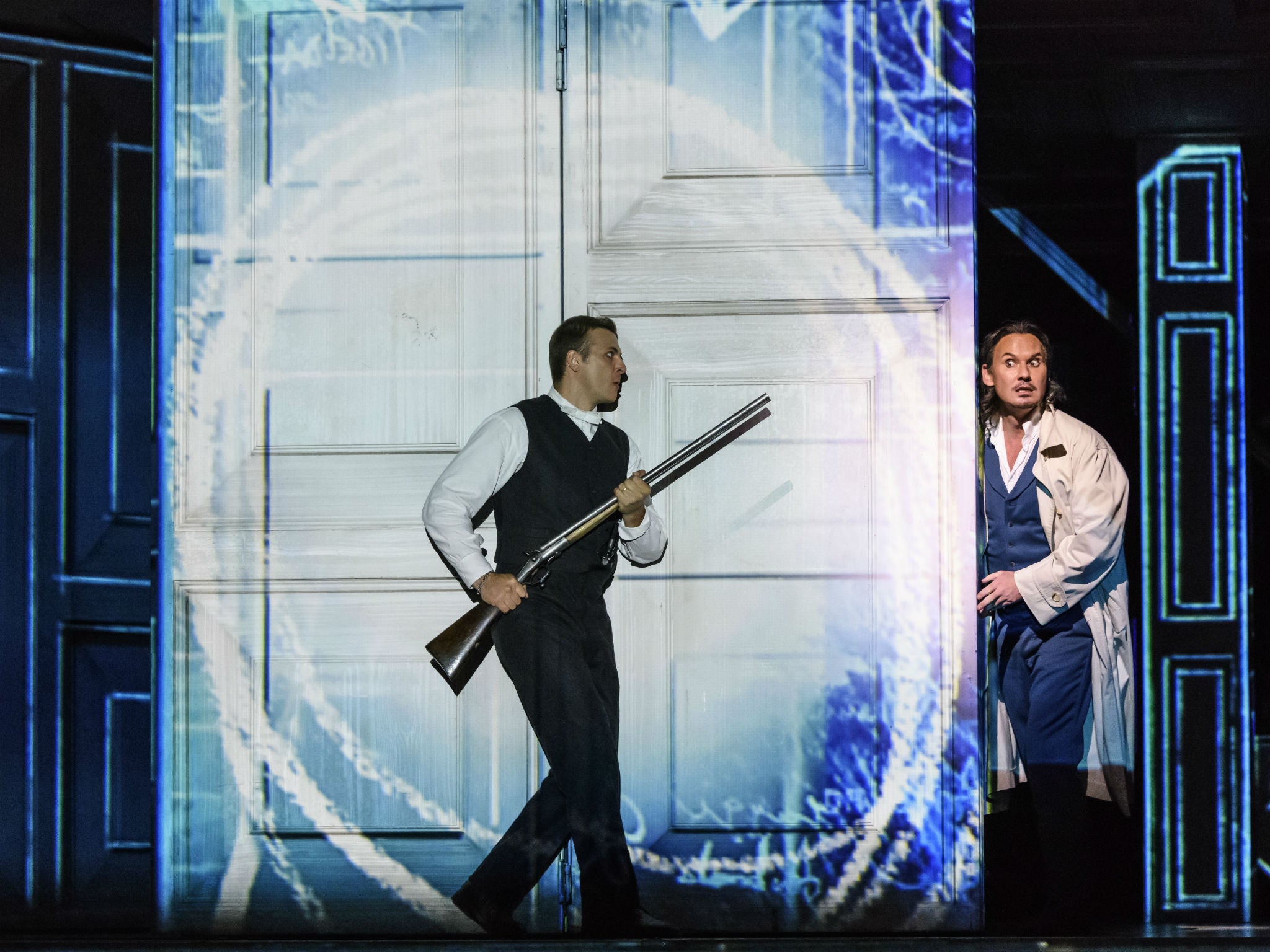Don Giovanni, Royal Opera House, London, review: The cast are sensationally good in an assured revival
Kasper Holten’s production, with designs by Es Devlin that seemed irritatingly tricksy first time round, has settled satisfyingly into its skin

Your support helps us to tell the story
From reproductive rights to climate change to Big Tech, The Independent is on the ground when the story is developing. Whether it's investigating the financials of Elon Musk's pro-Trump PAC or producing our latest documentary, 'The A Word', which shines a light on the American women fighting for reproductive rights, we know how important it is to parse out the facts from the messaging.
At such a critical moment in US history, we need reporters on the ground. Your donation allows us to keep sending journalists to speak to both sides of the story.
The Independent is trusted by Americans across the entire political spectrum. And unlike many other quality news outlets, we choose not to lock Americans out of our reporting and analysis with paywalls. We believe quality journalism should be available to everyone, paid for by those who can afford it.
Your support makes all the difference.Some revivals save shows, others only highlight their inherent weaknesses. Richard Jones’ replacement for John Copley’s much-loved Covent Garden Bohème profited by designer Stewart Laing’s spectacularly arcaded streets, glittering Café Momus, and pullulating, bandbox-bright crowds, but its second outing does it no favours: we now realise the scenery steals the show. The new cast are perfectly decent, however, and in Danielle de Niese we get a flirtatious Musetta as to the manner born.
On the other hand, Kasper Holten’s Don Giovanni, whose designs by Es Devlin seemed irritatingly tricksy the first time round, has settled satisfyingly into its skin under the guiding hand of revival director Amy Lane. Apart from one blind spot – Donna Anna keeps a distance from her father’s slumped body, singing of the deathly pallor of his face without having looked at him, and of the coldness of his limbs without having touched them – the direction is remarkably sure-footed, and the set works serene spells.
At its centre is a slowly rotating cube, a three-dimensional version of Escher’s Relativity, up and down whose maze of stairs the cast are in constant motion; its ambiguity is intensified by the ever-changing imagery projected onto it. This is by turns a charnel house, a flowingly calligraphed catalogue of the Don’s conquests, and a succession of scudding cloudscapes and blood-red suffusions which throw a cloak of semi-invisibility over the violence and occasional nudity.
And the cast are sensationally good. Pavol Breslik delivers his Don Ottavio in semi-detached recital-mode, but his singing is exceptionally sweet. Rachel Willis-Sorensen’s Donna Anna, on the other hand, projects simmering passion every moment she is on stage, whether lusting after her seducer, mendaciously rewriting history to convince her betrothed of her innocence, or crying to heaven for relief from her torment at the close. Her tone has a silvered lunar purity.
Chen Reiss’s winsome Zerlina produces a small but exquisitely sculpted sound, Hrachuhi Bassenz finds just the right measure of irony for her derangements as Donna Elvira, Willard White makes an unusually human Commendatore, and the two men at the centre of the action are beyond compare. Ildebrando D’Arcangelo’s thunderous Leporello effortlessly commands the stage, while the Polish baritone Mariusz Kwiecien reprises the title role with a new and thought-provoking intensity.
In this revival, sensitively conducted by Marc Minkowski, the Don is omnipresent even when not singing, which suggests that we are meant to see him as the projection of the female protagonists’ fantasies. Kwiecien’s versatile tone ranges from mean voraciousness to honeyed charm as he cuts his swathe through society, and in the denouement his desperate reaching-out for help, first from his ladies and then from us in the audience, puts a new gloss on the descent to hell. Kwiecien’s Don is a dramatic feat in itself.
Until 17 July (roh.org)
Join our commenting forum
Join thought-provoking conversations, follow other Independent readers and see their replies
Comments